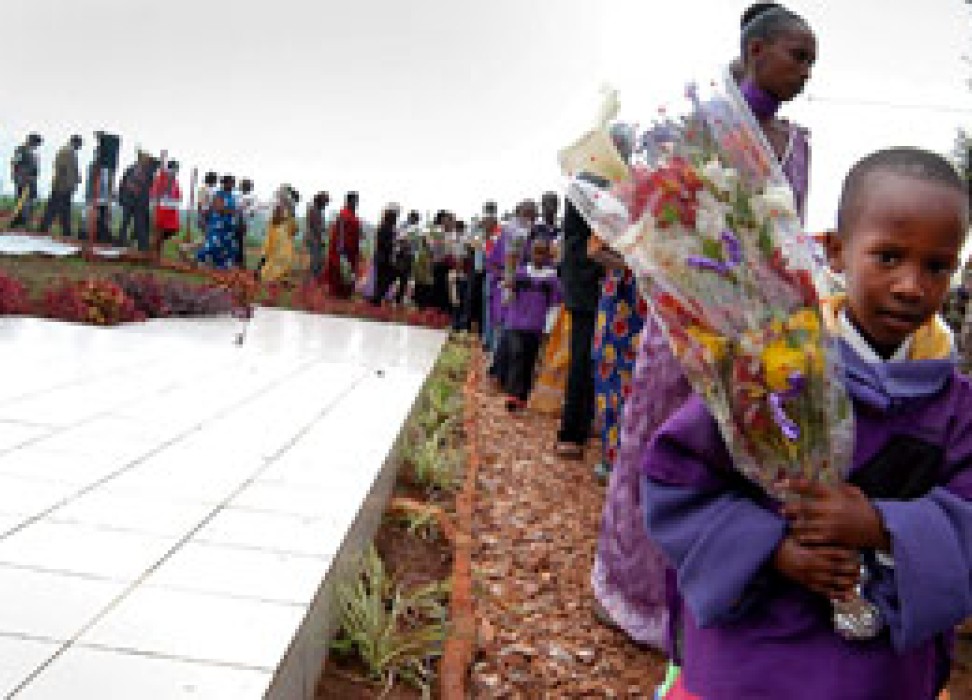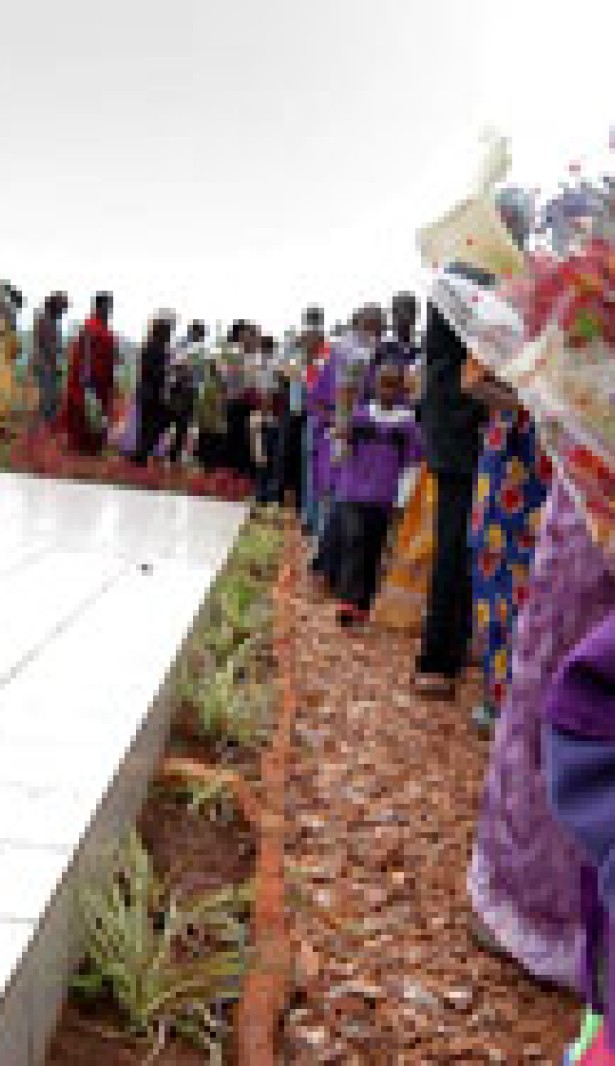Calling for urgent attention to prevent the ultimate crime
22 April 2014

“Genocide is the ultimate crime: a profound and whole-scale violation of human rights,” said UN Human Rights Chief Navi Pillay at a high level discussion to mark the sixty-fifth anniversary of the UN Convention on the Prevention and Punishment of the Crime of Genocide.
“Too often, it is preceded by repeated warning signs that fail to receive a strong and early international response,” she said.
Esther Mujawayo, a sociologist and Rwanda genocide survivor, told her moving story to the participants comprising of representatives from States, national human rights institutions and NGOs.
“We had been feeling the tension increase for a long time”, she said, recalling the catchy propaganda songs which called for the extermination of the Tutsi.
During her opening remarks, Pillay recounted her time as a Judge and the then President of the Rwanda Tribunal. “I heard witnesses and victims testify that direct and public incitement to commit genocide against Tutsis permeated gradually through society.”
“It was like a pool of petrol they said forming drop by drop, until a flash of violence set the whole country alight,” Pillay said.
Mujawayo recounted the 7th of April, 1994 when the deaths of the Presidents of Burundi and Rwanda ignited weeks of intense and systematic massacres. “They started to kill everywhere…there wasn’t a single day when the Tutsis weren’t hunted down and slaughtered.”
Mujawayo and her three daughters were of the lucky few who survived the Rwandan genocide, which took the lives of about 1 million people, both Tutsi and Hutu, during a period of only 100 days.
“I survived… but how do you continue to live when the rest of your family was killed?” she asked, then showing the participants photos of her many deceased relatives. “You can’t live without them and with this guilt… the guilt of surviving.”
When the violence stopped in July 1994, there was nothing left, Mujawayo said. She then described the “material and economic vacuum” in Rwanda: “the houses were destroyed…the cows were eaten… even the dogs”.
Yet, she said that the “social vacuum” was even more unbearable. “All the social values were broken,” she said. Rwandans no longer wish something good upon each other, such as a husband or children, in greetings, as they did before the genocide, she said.
“The people I showed you in the photo could still be here if we had reacted in time. What are we doing now for those lucky enough to survive?” she said.
“Twenty years after the beginning of the genocide in Rwanda, the horror has not diminished,” said Pillay in her statement on the International Day of Reflection on the 1994 Genocide in Rwanda. “We must support Rwandan efforts to ensure the promotion and protection of human rights for all, and efforts to move towards reconciliation and rehabilitation,” she said.
During the high level discussion in the context of the Human Rights Council’s 25th Session, the Special Adviser of the Secretary-General on the Prevention of Genocide, Adama Dieng, said, “Sixty-five years after the adoption of the Convention on the Prevention and Punishment of the Crime of Genocide, it is unfortunate that we have to recognize how necessary this Convention still is.”
“Today, not only do we continue to witness ethnic and religious tensions in various regions of the world but, worryingly, there has been a dangerous increase in the number of situations that merit our urgent attention,” he said.
Dieng highlighted the extreme forms of identity-based violence in countries such as the Central African Republic, Iraq, Pakistan, South Sudan and Syria and the serious human rights violations against different ethnic, religious or national groups in Myanmar, Nigeria and in the North Caucasus.
“We are all familiar with the promise of ‘never again’, added Jonathan Sisson, the Senior Advisor for the Dealing with the Past programme of the Human Security Division in Eastern Europe and the West Balkans. “Yet, we know that it will happen again, unless we can come forward with a vigorous response to transform the perverse dynamics of mass atrocity.”
In the past sixty five years there has been progress by the international community, including by the United Nations system, in developing practices to prevent genocide, including the identification of the root causes of genocide, as well as early warning signs, according to the UN Human Rights Office.
“The Committee on the Elimination of Racial Discrimination has identified key factors that may lead to genocide and which need to be acted upon immediately,” said Pillay. “These include systematic official denial of the existence of distinct groups; biased accounts of historical events that serve to demonize these groups; and political leaders who foster tensions by encouraging exclusionary ideologies, justifying discrimination, or even violence,” she explained.
“These warning signs must be alerted to,” said Pillay. “We must respond swiftly and in unison to protect human rights, democracy and the rule of law to prevent genocide.”
The high level discussion, organized by the UN Human Rights Office pursuant to the Human Rights Council Resolution 22/22, was held in Geneva in March to encourage States to redouble their efforts in preventing and punishing genocide and to discuss further how the goals of the Genocide Convention can be accomplished.
22 April 2014

